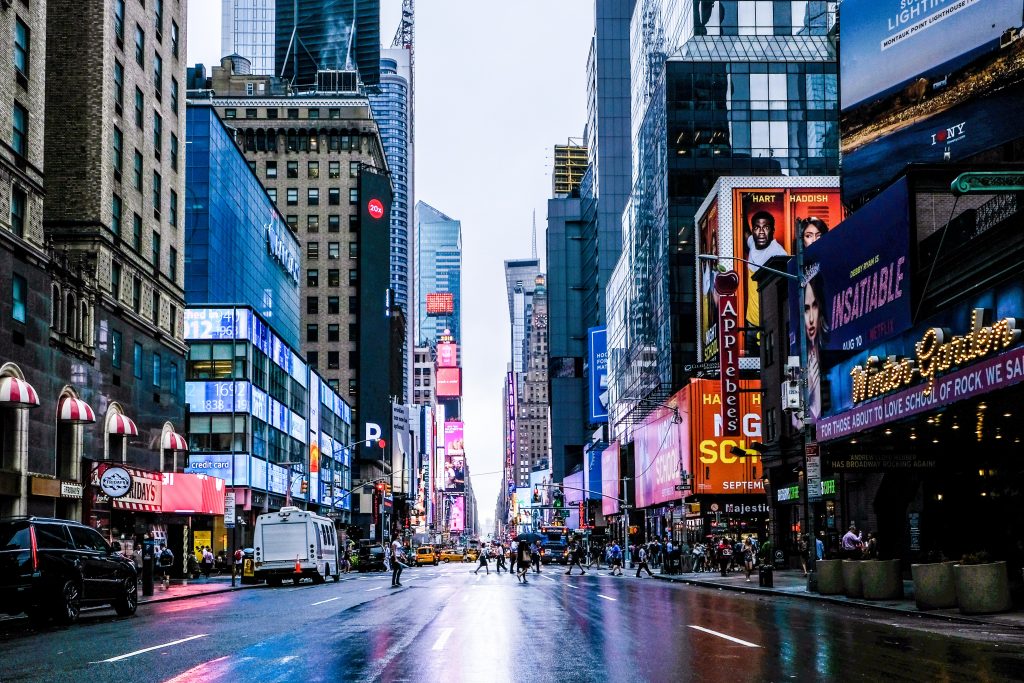Will the Pursuit of “The American Dream” Bring Happiness?
So many immigrants come to the US in hopes of achieving the “American Dream”. The phrase was coined in 1931 by James Truslow Adams. In his book, “The Epic of America” he stated that the American dream is “a dream of a land in which life should be better and richer and fuller for everyone, with opportunity for each according to ability or achievement.”
I believe, though, that over time this aspiration became linked with being successful, which meant having lots of money. I feel like the orientation towards achievement became a predominant force that mercilessly drove and still drives immigrants who establish their lives in the US.
The opportunity for social mobility does exist and is very real. People like Hamdi Ulukaya, a Turkish-Kurdish immigrant, are able to establish companies like Chobani. I dated someone who is a “successful” immigrant. He came from a very poor family in Northern Africa and created a flourishing business in the US. He purchased a house a few miles from the beach and bought a brand new Tesla. He also works 12 hours a day, 7 days a week.
If we bring our focus to the collective cultural layer, the ideal of the “American Dream” becomes tainted. According to the Federal Reserve’s 2016 Survey of Consumer Finances, people at the top 10% of the income distribution held more than three-quarters of all wealth.

As a refugee, on top of the pressure to “succeed”, I also sensed an underlying requirement to prove to the Americans who sponsored us, that they made a right “investment”. I felt an unspoken agreement, between myself and them, that I have to live up to their expectations. I need to work hard and become a “successful” person, according to their definition of success.
I also felt a cloud of anticipation weighing over my head that was linked to my parents. They brought me and my brother to the US not only for safety but also because they wanted us to have a better future.
Although I deeply appreciated my parents for bringing us to the US, I also felt a duty to fulfill their hopes for coming here. I wanted to compensate somehow for their hard work and sacrifices they made. I worked hard myself. In school, in a department store and as a babysitter.
After just 5 years of living here, with barely speaking English when I arrived, I got accepted into University of Michigan in Ann Arbor, which is in the list of top 25 schools in the US.
I later realized that with these unspoken pressures, striving, achieving and working hard became a “normal” way of life. The right to simply be wasn’t really an option. There wasn’t much space, nor time given to healthy living, to relaxation, to exploration, to pleasure and to play.

As I reclaimed my right to define what success meant to me, I am no longer “working hard” but rather discovering a way that feels healthy, that doesn’t burn me out but rather replenishes me.
I am reclaiming my right to simply be. To enjoy walks in my neighborhood. To notice beauty that I am surrounded by. To relax the tensions in my body, so that I can live with greater ease and less struggle. I am continuing to invest in my healing, so I can more fully stand in my wholeness and enjoy life.
What if instead of orienting our lives around achievement and accomplishment, which are patriarchal masculine values, we oriented our aspirations around soulful living, around healthy and authentic relationships, and around deep fulfillment.
What if instead of asking ourselves what we accomplished at the end of the year, we asked ourselves how much we grew in love, in kindness, in peacefulness, in passion, in pleasure, in aliveness.
May be then, our lives would truly become “better, richer and fuller”, like James Truslow Adams intended when he coined the phrase “The American Dream”.
PRACTICE
If you want to play along, I invite you to choose a quality for this year that you want to cultivate and invite it consciously into your life. Commit to this quality, put a sticker on your computer as a reminder and recommit to it through the year!
Wishing you a miraculous 2020!
Resources referenced:


